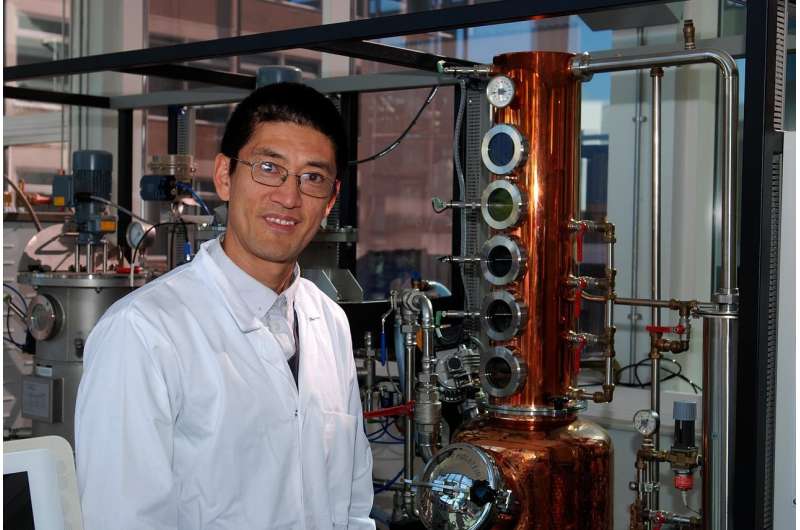Seawater breakthrough in production of climate-friendly fuel bioethanol cuts demands on freshwater

In the fight against global warming, bioethanol fuel is seen as a climate-friendly alternative to petrol and its adoption has been encouraged by many governments. But producing it requires huge amounts of freshwater – a precious resource in many parts of the world. Now, scientists at the University of Huddersfield have shown how it is possible to use a seawater-based system instead.
A new article in a leading journal describes how a strain of marine yeast can be used with seawater and a substrate, such as molasses, for a fermentation process that produces bioethanol. Current methods can have a water footprint of more than 1,000 litres of fresh water to produce a single litre of the fuel.
"This research is the first step towards a potentially significant reduction of water footprint in the bioethanol production industry," said Dr. Chenyu Du, who is Reader in Chemical Engineering at the University of Huddersfield's Department of Chemical Sciences.
Fermentation and bio-processes are among his key areas of interest and his career has included research into chemical production from sustainable raw materials and the development of a new generation of biofuels. He was the academic supervisor for Dr. Abdelrahman Zaky, whose University of Huddersfield Ph.D. – titled Utilisation of novel marine yeast and seawater-based media for the production of bioethanol – was awarded last year.
Now Dr. Du and Dr. Zaky are lead authors of an article that appears in Scientific Reports, demonstrating that "seawater can substitute freshwater for bioethanol production without compromising production efficiency" and that "marine yeast is a potential candidate for use in the bioethanol industry, especially when using seawater or high salt-based fermentation media."
The article describes the quest for the marine yeast that was best suited to the process. Seeking and isolating this micro-organism was like prospecting for gold, said Dr. Du. Eventually, results showed that a novel marine yeast strain named Saccharomyces cerevisiae AZ65 produced the best results.
The initial experimental work was carried by Dr. Zaky, supervised by Dr. Du, while they were based at Nottingham University. Further analysis was then carried out at the University of Huddersfield, after Dr. Du had taken up his post at its School of Applied Sciences and where Dr. Zaky completed his doctoral project.
He says that: "The main purpose of marine fermentation is to introduce an alternative source of water and biomass for industrial biotechnology in order to reduce pressure on use of freshwater and arable land, allowing these resources to be dedicated to production of food and feeds and reducing production costs."
Dr. Du said that the next step is to develop the use of a marine substance – such as seaweed – as an alternative to the likes of maize or sugar cane in the bio-refining process.
"This would mean we were able to produce bioethanol fully from the marine environment," he explained. This approach is described in a paper published in Current Opinion in Green and Sustainable Chemistry.
"The establishment of a marine focused biorefinery for bioethanol production using seawater and a novel marine yeast strain," by Abdelrahman Saleh Zaky, Darren Greetham, Gregory A. Tucker and Chenyu Du appears in Scientific Reports.
More information: Darren Greetham et al. A brief review on bioethanol production using marine biomass, marine microorganism and seawater, Current Opinion in Green and Sustainable Chemistry (2018). DOI: 10.1016/j.cogsc.2018.06.008
Abdelrahman Saleh Zaky et al. The establishment of a marine focused biorefinery for bioethanol production using seawater and a novel marine yeast strain, Scientific Reports (2018). DOI: 10.1038/s41598-018-30660-x
Journal information: Scientific Reports
Provided by University of Huddersfield


















